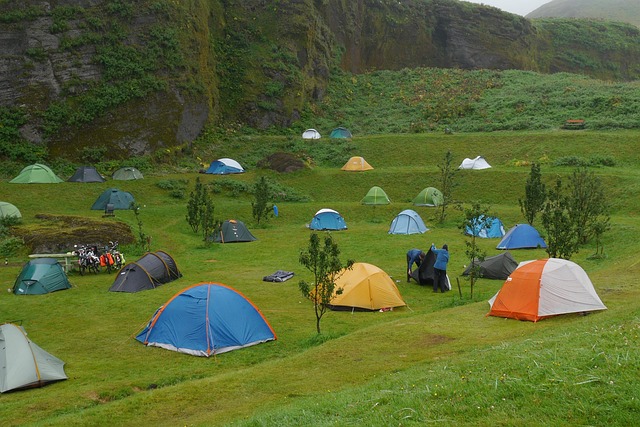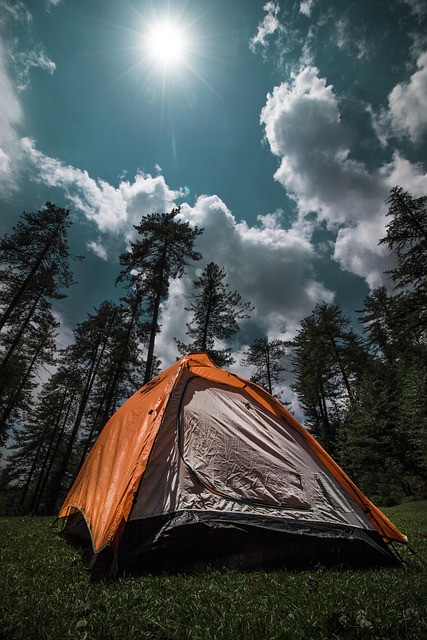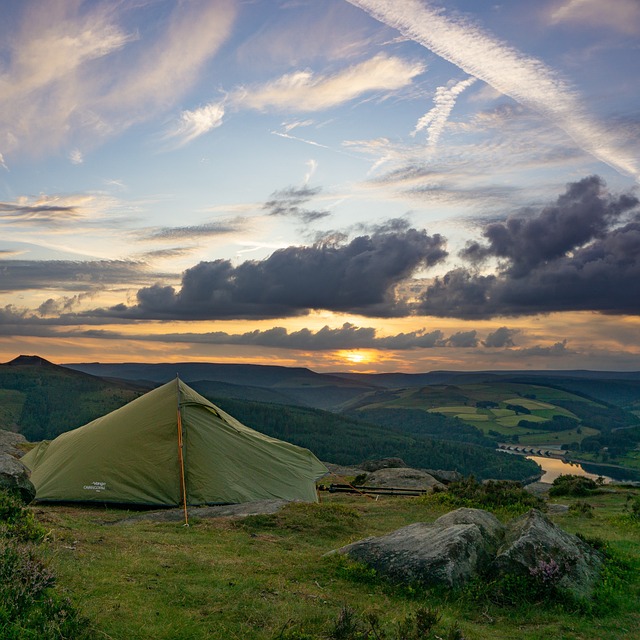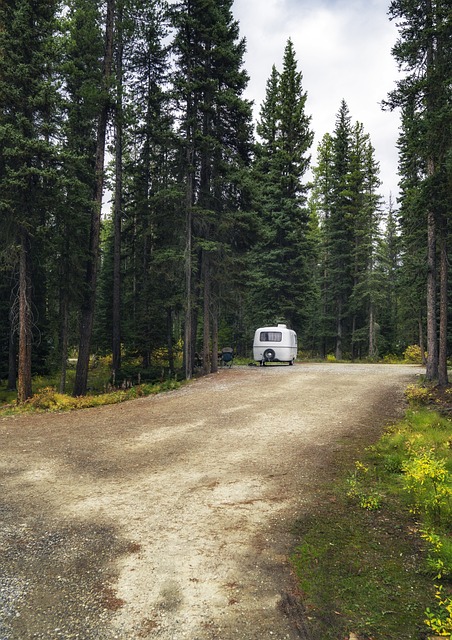When planning an outdoor adventure, opt for eco-conscious campgrounds that offer a range of options from scenic campsites in national forests to family-friendly RV parks. These locations prioritize sustainability with recycling, energy efficiency, and water conservation practices while providing modern amenities or primitive camping experiences. Lakeside campgrounds within national forest settings balance natural beauty and outdoor recreation, appealing to diverse preferences and ensuring memorable adventures with minimal environmental impact.
Unwind in nature while preserving its beauty. Discover the world of eco-friendly campgrounds and embrace sustainable practices for an unforgettable outdoor experience. From scenic campsites that blend into breathtaking landscapes to family-friendly spots fostering responsible fun, we explore diverse options. Learn about national forest destinations committed to environmental stewardship, and master tips for planning a green camping trip. Embrace recycling, energy efficiency, water conservation, organic food, and wildlife preservation to leave only footprints in your trail.
- Choosing Eco-Conscious Campgrounds
- – Definition of eco-friendly campgrounds
- – Benefits for the environment and future generations
- Types of Eco-Friendly Camping Options
- – Scenic campsites: beauty and sustainability
Choosing Eco-Conscious Campgrounds

When planning an outdoor adventure, selecting an eco-conscious campground is a responsible choice that contributes to preserving our natural wonders for future generations. Look for scenic campsites nestled in lush national forests or alongside tranquil lakesides, offering a peaceful retreat while minimizing environmental impact. These locations often encourage primitive camping, allowing visitors to reconnect with nature without leaving a trace.
Family-friendly campgrounds and RV parks are also excellent options, providing amenities that cater to diverse needs while promoting sustainability. Many such facilities implement practices like recycling programs, energy-efficient lighting, and water conservation measures. Whether you’re seeking the tranquility of a remote setting or the conveniences of modern camping, choosing eco-conscious options ensures your outdoor experience respects and preserves the beauty of our planet’s landscapes.
– Definition of eco-friendly campgrounds

Eco-friendly campgrounds are outdoor destinations designed with minimal environmental impact in mind. These scenic campsites prioritize sustainable practices to preserve natural landscapes and offer a range of options, from primitive camping for those seeking a back-to-nature experience to family-friendly facilities at RV parks. Located in national forest areas or by lakesides, these campgrounds encourage visitors to connect with nature while ensuring the protection of local ecosystems.
Whether you’re an outdoor enthusiast exploring primitive camping or looking for modern amenities at family-friendly sites, eco-friendly campgrounds cater to various preferences. By choosing these sustainable options, campers contribute to the preservation of natural resources and help create a harmonious relationship between humans and the outdoors, making each visit a memorable experience in breathtaking settings.
– Benefits for the environment and future generations

Adopting eco-friendly practices in campgrounds offers a myriad of benefits for both current and future generations. By prioritizing sustainability, scenic campsites can minimize their environmental footprint while preserving the natural beauty that attracts visitors. This includes efforts to reduce waste, conserve water, and promote responsible energy usage. Family-friendly campgrounds, RV parks, and primitive camping sites located in national forest areas or by lakesides play a crucial role in this narrative. They offer an opportunity for people to connect with nature while also ensuring that these precious landscapes remain intact for future outdoor enthusiasts.
Such practices not only safeguard the ecological balance but also foster a deeper appreciation for our planet among campers. From reducing pollution and preserving wildlife habitats to protecting fragile ecosystems, these sustainable initiatives contribute to a healthier environment. By embracing eco-conscious choices, campgrounds can set an example for others in the industry, encouraging a broader movement towards more responsible outdoor recreation.
Types of Eco-Friendly Camping Options

When it comes to eco-friendly camping options, there’s a diverse range of choices for nature lovers seeking sustainable adventures. Scenic campsites offer breathtaking views and tranquility, often located in national forests or remote areas, appealing to those who want to immerse themselves in untouched landscapes. For families looking for a memorable experience, many campgrounds now cater specifically to their needs, providing play areas, kids’ activities, and amenities that make outdoor education enjoyable for all ages.
RV parks have also embraced sustainability, incorporating solar panels, greywater recycling systems, and eco-friendly cleaning products. These parks accommodate recreational vehicles, allowing travelers to explore different locations while minimizing their environmental impact. Primitive camping, on the other hand, encourages a more back-to-basics approach, with minimal amenities, perfect for those seeking a true off-the-grid experience. Lakeside campgrounds offer serene surroundings and recreational activities like swimming and fishing, providing an ideal blend of natural beauty and modern conveniences.
– Scenic campsites: beauty and sustainability

Scenic campsites offer a unique blend of natural beauty and outdoor recreation, making them a popular choice for families seeking an eco-friendly vacation. These sites often boast breathtaking landscapes, from lush forests to serene lakesides, nestled in national forest locations or remote areas. Incorporating sustainable practices, family-friendly amenities, and access to primitive camping options, scenic campsites cater to diverse preferences while minimizing environmental impact. RV parks within these natural settings provide modern conveniences without compromising the experience of being surrounded by untouched landscapes.
Lakeside campgrounds are particularly appealing, offering activities like swimming, fishing, and kayaking that promote outdoor lifestyle while encouraging respect for nature. Many of these sites also implement initiatives such as recycling programs, renewable energy sources, and water conservation measures to ensure their operations remain sustainable. By choosing scenic campsites, families can enjoy the outdoors responsibly, leaving minimal footprints while creating lasting memories in some of the most breathtaking natural settings available.
